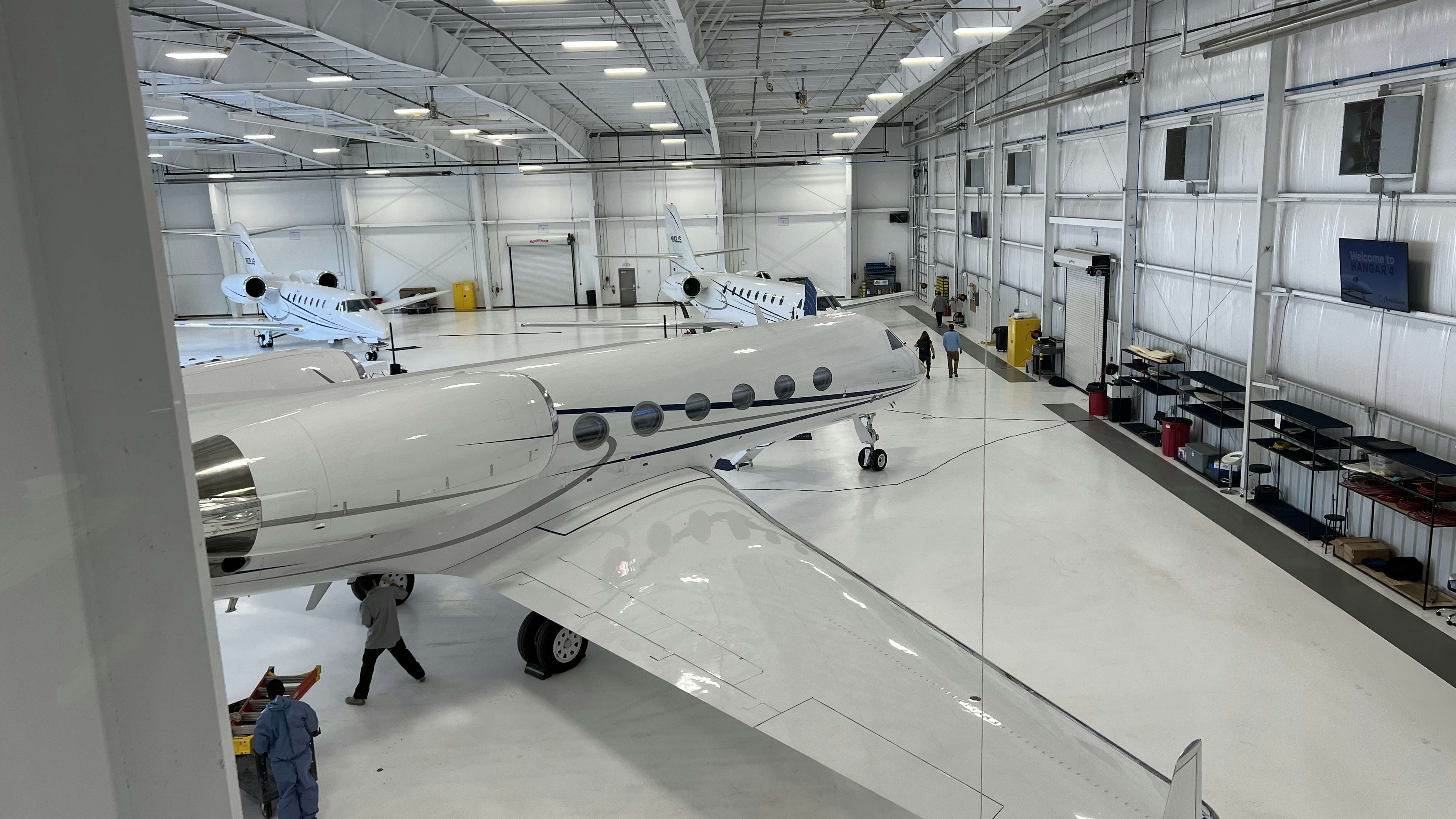
Newly public FlyExclusive was able to maintain a small EBITDA profit as net loss increased to $54.7 million driven by IPO costs.

Revenue at FlyExclusive dropped 1% from $320 million in 2022 to $315.4 million in 2023, missing its revised forecast of $323.1 million.
The Kinston, North Carolina-based aviation company also narrowly maintained its streak of EBITDA profitability, which it achieved every year since its second year of operations.
During its pre-IPO Investor Day presentation last June, the fifth-largest private jet operator had expected $367.3 million in revenues.
In the end, its Jet Club jet card and charter revenue increased 22% from $194.9 million to $237.8 million.
Membership revenue increased from $3.9 million to $5.4 million. FlyExclusive charges Jet Club members $1,000 per month as a membership fee.
According to Chairman and CEO Jim Segrave, its jet card program now accounts for about a quarter of all revenue.
At the same time, fractional aircraft sales jumped 196% from $508,000 to $6 million year-over-year.
He said 40 of the 48 fractional shares it sold in 2023 were closed in December.
MRO revenues increased from $1.6 million to $4.6 million.
The gains were offset by a 46% drop in revenues from its Guaranteed Revenue Program, which dropped from $123.1 million to $66.9 million, all of which came in the first half of 2023.
FlyExclusive is currently engaged in litigation with Wheels Up over the June 30, 2023, termination of the GRP between the two flight providers.
FlyExclusive does not expect any GRP-generated revenue in 2024.
Segrave said the company is continuing a transition from “primarily ad hoc non-contractual wholesale business prior to 2020 to a focus on serving retail customers.”
He also said the company outperformed the market.
“From our vantage point, demand remains strong,” Segrave said.
“As we look at Aviation Research Group data for the overall industry, 2023 was down approximately 13% for light jets and 8% for mid-size jets compared to 2022. FlyExclusive was off only about 4.5% overall. We were able to capture market share through a combination of member growth and fleet expansion, a trend which we see continuing in 2024,” he added.
At the same time, Total Costs and Expenses for 2023 increased from $332.3 million in 2022 to $366.6 million.
Big increases were in Professional Fees & Marketing, up $14.2 million; Salaries, up $9.8 million; Aircraft Leases, up $5.9 million; Maintenance, up $4.7 million; and Personnel-Related Expenses, up $4.0 million. FlyExclusive also saw a jump of $1.2 million in software costs.
The result was Net Loss increased from a $4.1 million loss in 2022 to $54.7 million last year.
EBITDA profit dropped from $27.6 million to $314,000. FlyExclusive had forecast an EBITDA profit of $25.2 million.
Segrave said around $45 million in expenses were related to its December IPO via the SPAC merger.
Looking ahead at expenses, Segrave said the private airline would benefit from having fewer aircraft down for refurbishment.
Last year, at any given time, as many as four jets were out of service being refurbished. That now averages two airplanes.
Its modernization programs will also see 37 of its least efficient jets exit the fleet, including a dozen with deals in place.
FlyExclusive plans to add up to 20 Bombardier Challenger 350s from the preowned market.
Deferred Revenue, mainly jet card sales, increased from $58.0 million to $83.9 million year-over-year.
Cash and cash equivalents dropped from $23.2 million at the end of 2022 to $11.6 million at the end of 2023.
During the earnings call, Segrave said the company has equity in aircraft shares available for sale in its fractional program of over $70 million.
Additionally, the company has approximately $20 million of cash on deposit for more fractional aircraft.
“The Company believes its cash and cash equivalents on hand, operating cash flows, and proceeds from possible financings, if any, will be sufficient to fund operations, including capital expenditure requirements, for at least 12 months from the issuance date of these financial statements,” according to its annual report.
It continued, “[T]he Company might need additional capital to fund growth plans or as circumstances change, which it could obtain through equity issuances, refinancing existing debt or new borrowings.”
According to the filing, FlyExclusive plans to refinance contractual principal payments that comprise the short-term debt liability as they become due.
At the end of 2023, FlyExclusive had 102 aircraft on its charter certificate, up from 91 at the end of 2022.
Despite market headwinds, the number of active retail members, including Jet Club, fractional, and partners (who lease their jets to FlyExclusive), increased 31% from 670 to 876.
Total flight hours per aircraft were down from 646.0 to 579.3.
Without the GRP flights from Wheels Up, hours per aircraft would have increased from 421.4 hours to 497.4 hours year-over-year.
Fractional and Jet Club will eventually have around 70% of the revenues, Segrave said.
He added, “We have plenty of room to add customers.”
The average number of members per aircraft increased from 7.5 to 9.1.
Segrave said other fleet operator programs typically have 20 to 30 customers per aircraft.
He said over 99% of program clients are served on-fleet.
The founder called his company’s performance “strong in a sideways market,”
According to research by Private Jet Card Comparisons, FlyExclusive has the second-largest pipeline of prospects who didn’t buy from it during their last purchasing cycle but are considering it for the future.